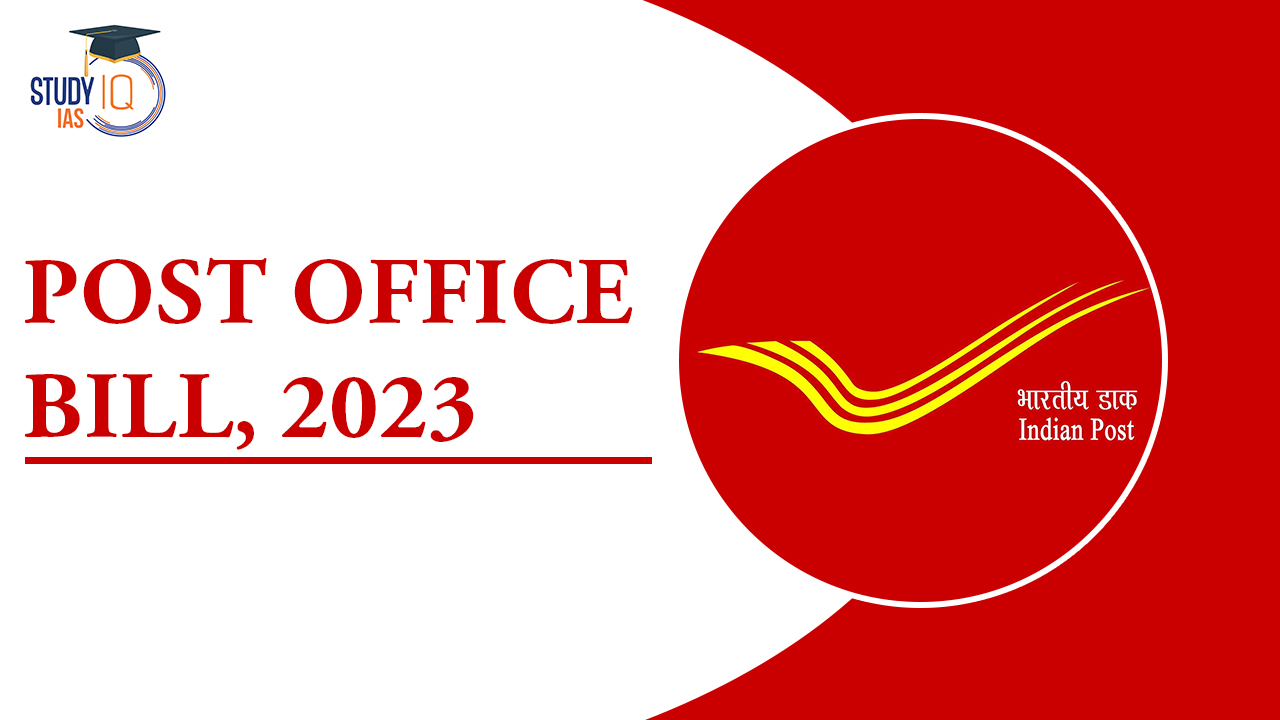Table of Contents
Context:The Post Office Bill, 2023 was introduced in the Rajya Sabha on 10 August 2023 and passed on 4 December 2023.
Post Office Act 2023 Comes into Effect
The Post Office Bill, 2023 was introduced in the Rajya Sabha on 10 August 2023 and passed on 4 December 2023. The Lok Sabha passed it on 13 and 18 December 2023. It received presidential assent on 24 December 2023 and was published in the Gazette of India. The Act simplifies the legislative framework for delivering citizen-centric services, banking services, and government schemes, enhancing ease of business and living. It eliminates exclusive privileges for letter delivery and prescribes standards for addressing and postcodes. Effective 18 June 2024, the Act repeals the Indian Post Office Act, 1898.
Indian Post Office Act of 1898 Vs Post Office Bill, 2023
| Feature | Indian Post Office Act 1898 | Post Office Bill 2023 |
| Exclusive Privileges | Central government has exclusive right to convey letters | No exclusive privileges granted |
| Services Offered | Specified – letter delivery, parcels, money orders | Prescribed by central government |
| Interception of Postal Articles | Permitted during public emergency, for public safety/tranquillity |
|
| Examination of Prohibited/Duty-Liable Articles | Officer in charge can examine suspected articles | No power of examination; central government can empower officer to deliver item to customs/other authority |
| Regulation of Private Couriers | Not included | Brought under the Bill’s ambit |
| Liability of Post Office/Officials | Exempt from liability unless prescribed in rules | Exempt from liability for loss, misdelivery, delay, damage (except prescribed liabilities) |
| Recovery of Unpaid Charges | Not specified | Charges become land revenue due and recoverable as such |
We’re now on WhatsApp. Click to Join
Concerns Raised against Post Office Bill, 2023
- Conflict of Interest: The Bill exempts India Post from liability for service lapses. However, the liability will be defined through rules made by the central government, which also controls India Post. This creates a potential for bias and a lack of accountability.
- Threat to Privacy: The Bill omits penalties for unauthorised opening of mail by postal officials. This raises concerns about violations of consumer privacy and a lack of deterrence against such actions.
- Procedural Ambiguity: The Bill lacks specific procedures for intercepting postal articles. This absence of safeguards could pose threats to freedom of speech and expression, potentially exceeding reasonable restrictions outlined in the Constitution.
- Vagueness in Terminology: The Bill cites broad terms like “emergency” as grounds for interception, which might exceed constitutional limitations on such restrictions. This vagueness raises concerns about the potential misuse of the power to intercept.


 GPS Spoofing and Its Impact in India: A ...
GPS Spoofing and Its Impact in India: A ...
 Amrit Gyaan Kosh Portal: A Comprehensive...
Amrit Gyaan Kosh Portal: A Comprehensive...
 UpLink Initiative: Launched by World Eco...
UpLink Initiative: Launched by World Eco...





















